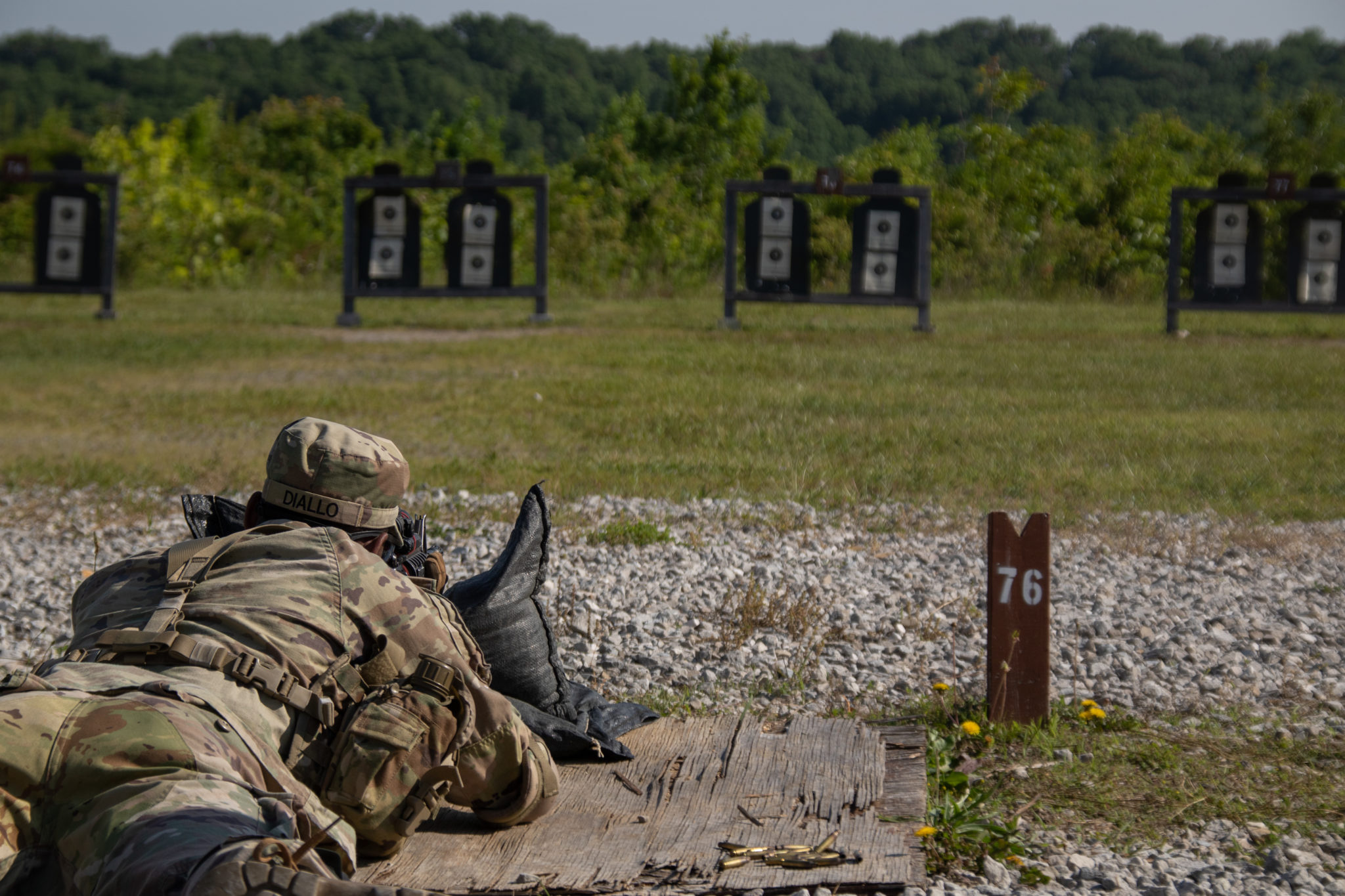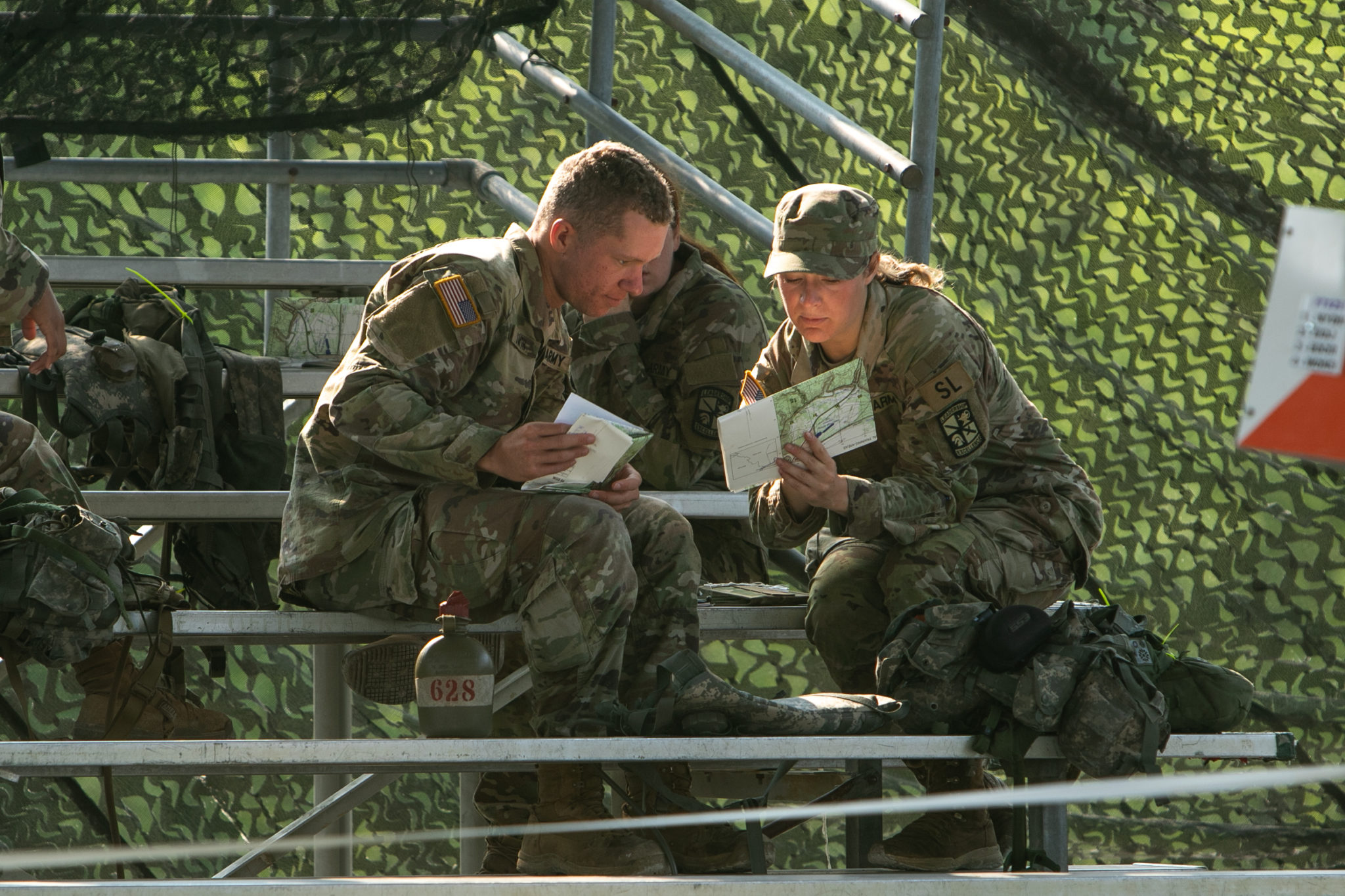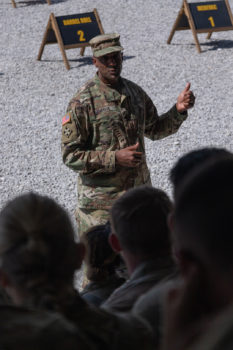
“Wake up everyday to give the best leadership to those soldiers that you have the privilege of being in front of,” said Lt. Gen. Gary Brito, Deputy Chief of Staff, United States Army.
Brito gave this advice to 9th Regiment, Advanced Camp, Cadets, at Cadet Summer Training (CST), while visiting Fort Knox.
During his visit, Brito interacted with Basic Camp Cadets as they trained at the Engagement Skills Trainer (EST), and Advanced Camp Cadets as they completed the Field Leader Reaction Course (FLRC).
He also spoke on the culture at CST.
“They learn how to operate in a very diverse environment,” Brito said, “It’s nothing but a great time to hone their skills or to learn the value of being a good teammate.”
In addition to this, Brito stressed the importance of investing in and trusting the NCOs that the Cadets will lead in their future role as Army Officers.
This message especially resonated with Cadet Khi Baker, from South Carolina State University, who spent time previously enlisted as an 88M Motor Transport Operator.
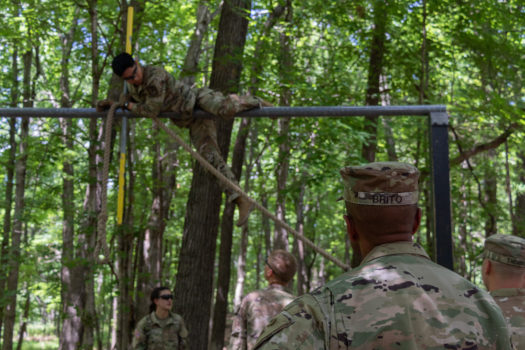
“For me, coming from that side and coming to the other side, I know the good and bad from both,” Baker said.
With this in mind, he emphasized the value of efficient and well-rounded leadership.
“It’s going to take a lot of leadership, good leadership qualities for them to gain trust from these NCOs who have been in for years and got a lot of experience,” Baker said.
Cadet Isaac Mun, from University of Colorado Boulder, agreed with this perspective, mentioning that he will definitely be taking Brito’s advice by caring for and relying on his NCOs in the future.
“You have to understand the people you’re leading. So to do that, you kind of have to put the people first and take care of your people before anything else,” Mun said.
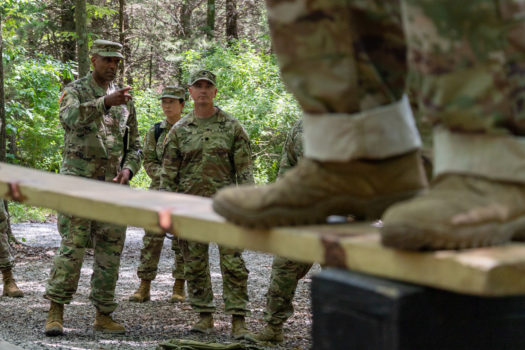
He believes that being a successful leader dwindles down to one core idea.
“Don’t work for yourself, work for other people around you,” Mun said.
Cadet Drew Johannes, from Wabash College, expressed a similar viewpoint.
Johannes shared the impact that Brito’s words had on him and his interpretation of leadership.
“It’s really important to have that command presence and not be intimidated by a large crowd,” said Johannes.
Along with this, the main lesson he learned from his time with Brito was an understanding of when to lead from the front, and when to fill a supporting role.
“When in charge, be in charge, when a follower, be a better follower,” Johannes said.

